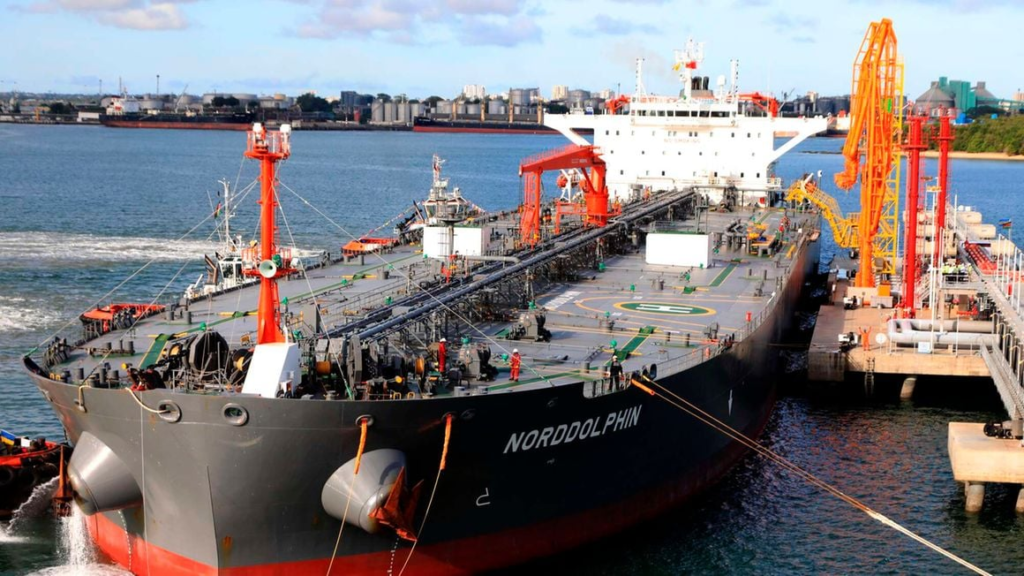
Oil marketers have presented a proposal to the Treasury for the conversion of fuel subsidy arrears worth billions of shillings into an interest-earning debt instrument like bonds to shore up their worsening cash flow.
The companies want their arrears estimated at Sh45 billion converted into a three-year debt instrument, offering them an opportunity to regular interest over the period, said sources familiar with the matter.
The proposal is seen as a win-win given it will cushion a government gripped with a cash squeeze from raising the billions upfront while providing petroleum dealers with regular interest payments over the three years.
A three-year bond is currently fetching average returns of 14.5 percent, signalling marketers could earn interest of about Sh6.25 billion in the first year if their arrears will be pegged at the market rate.
“We raised the concern that our money was sitting with the government without earning any interest while we continue to suffer cash-flow challenges. We are worried that if this situation drags on, we will be the ones at a loss,” said an executive at a top dealer, who spoke on condition of anonymity.
Fuel retailers are grappling with cash-flow woes in the wake of delays in the payment of subsidies to the companies by the government, with the small dealers hard hit amid fears of bank defaults.
TotalEnergies, for example, disclosed it took Sh14.5 billion in short-term loans in the year ended December as the compensation delays hit the well-oiled multinationals.
“The proposal has been agreed to in principle with the National Treasury but we are waiting for finer details on how it will be executed should it be accepted,” said another top executive in the petroleum business.
The Treasury has been struggling to compensate oil dealers for keeping pump prices low since 2021, prompting disquiet in the industry as dealers grapple with cash-flow challenges.
The compensation delays and pressure from the International Monetary Fund (IMF) forced the government last month to finally abandon the subsidy, triggering a jump in pump prices.
The price of kerosene jumped by Sh15.19 per litre and that of diesel increased Sh6.40 a litre.
The IMF projected that the fuel subsidies would set back taxpayers Sh119 billion if used throughout the financial year ending June.
The government has since April 2021 spent Sh124.1 billion subsidising fuel, which helped stabilise prices at the pump and eased pressure on inflation.
Vivo Energy, which controls nearly a quarter of the local fuel market, is owed Sh13.45 billion followed by TotalEnergies at Sh8.16 billion and Rubis, the third biggest oil marketer (Sh4.03 billion).
Oryx Energy is yet to be paid Sh3.48 billion followed by Ola at Sh2.31 billion, Galana Oil (Sh1.24 billion) and Gapco (Sh1.01 billion).
The Energy and Petroleum Regulatory Authority (Epra) indicates that it has validated the arrears and presented them to the Treasury for action.
The plan to convert the Sh45 billion arrears into an interest-earning debt comes at a time when the Treasury has hinged on the three-year bond to mobilise domestic debt as investors give long-term securities a wide berth.
In April, the government reopened two bonds, including a three-year security that received bids worth a measly Sh7.3 billion against the targeted Sh30.0 billion.
The fortunes, however, changed in May when the government raised Sh58.5 billion from a three-year bond with the primary issuance raising Sh20.7 billion before being augmented with two tap sales that raised Sh10.6 billion and Sh27.2 billion.
In the run-up to the August 2022 elections, the Kenya Kwanza manifesto indicated intentions to explore securitisation as one of the ways of addressing the backlog of pending bills—which has pushed suppliers into financial distress.
“To remove the pressure of settling pending bills from the annual budget allocations, a transactions advisor will be engaged to advise on the securitisation of the outstanding bills subject to verification,” the Kenya Kwanza Manifesto stated.
The Ministry of Petroleum was one of the biggest beneficiaries in Kenya Kwanza’s debut supplementary budget, which increased its allocation for the financial year ending June from Sh24.7 billion to Sh66.4 billion.
The Sh21.7 billion increase was earmarked to help offset the fuel subsidy arrears.






